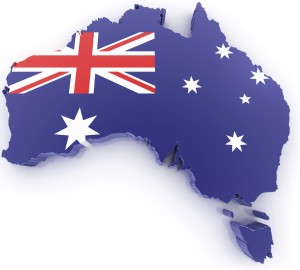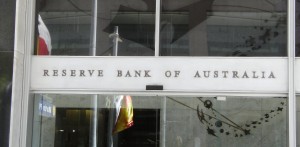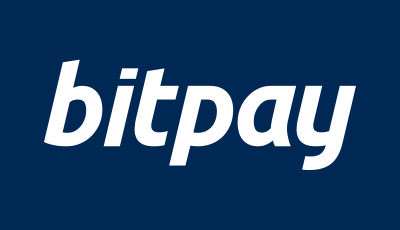Australia putting Bitcoin under the microscope
 The Australian Crime Commission is investigating Bitcoin’s role in organized crime, reports Reuters.
The Australian Crime Commission is investigating Bitcoin’s role in organized crime, reports Reuters.
Judy Lind, the commission’s executive director, has revealed that investigators will monitor “misuse of virtual currencies to facilitate criminal activity” at a national and global level, under an operation named Project Longstrike.
“We know that virtual currencies including bitcoin are used as payment methods to facilitate illicit trade on the darknet,” said Lind in a statement to Reuters, referring to a hidden part of the Internet where information can be shared anonymously and without disclosing the location of its source.
“Organized crime groups continue to make use of darknets to harbor trading in illicit commodities, including child exploitation material, illicit drugs and firearms, stolen credit card and identity data, and hacking techniques,” said Lind.
Reuters reported that Project Longstrike is just the latest effort by Australia to crack down on Bitcoin-enabled crime. The country said last month it extradited to the United States the alleged primary operator of Silk Road; in October, police seized Queensland’s first Bitcoin ATM five months after it opened, with police reportedly believing it was being used by a former motorcycle gang member to deal crystal meth.
Meanwhile, the Australian government is holding a parliamentary inquiry on Bitcoin and regulation. Senator Sam Dastyari, who is leading the inquiry, told Reuters that Bitcoin offers a way to “shake up” the country’s “stale” banking industry, and noted that a regulatory system is needed that polices crime without restricting the digital currency.
“There is going to be a place for some kind of digital-style currency. There is inevitability that it will play some kind of role,” said Dastyari to Reuters. “Do you go and start regulating it first, or wait for the IMF [International Monetary Fund] to do it first and come on board?”
In its submission to the parliamentary inquiry, the Tax Institute, Australia’s tax professionals’ association, proposed the creation of a voluntary Bitcoin register on which individuals and companies could register a Bitcoin public address, with the goal of deanonymizing Bitcoin ownership in the country, reports ZDNet.
“This register would assist in proving that the entity owns the bitcoin held at those addresses,” said the institute in its submission, as reported by ZDNet. “This register could be administered by an existing government agency (for example, ASIC [Australian Securities and Investments Commission] or the ATO [Australian Taxation Office]), which could serve as the regulator/licensing authority for businesses dealing with bitcoin.”
The Tax Institute also suggested the government consider developing, or supporting the development of, systems designed to track the Bitcoin blockchain in order for the ATO to monitor transactions for taxation purposes, said ZDNet.
“We recommend that the committee examine the ability of the ATO to enforce the tax outcomes intended for digital currencies, and the resources required to do so,” said the institute. “In particular, resources may need to be allocated to developing systems to effectively read and monitor the blockchain (the record of all bitcoin transactions), in combination with traditional cash-economy tax auditing techniques.”
ZDNet noted the institute’s recommendations follow an ATO guidance released this past summer stating it would treat digital currencies like Bitcoin as a commodity for business or high-value transactions more than $10,000 AU. The institute suggested that one interpretation of the existing tax law is that Bitcoin is treated as foreign currency.
“Earlier this year, the ATO issued a draft GST [goods and services tax] Ruling…which treats transactions involving bitcoin as barter transactions, resulting in payments of bitcoin being taxable supplies in their own right, and subject to GST,” said the institute in its submission. “It is our view that this alternative interpretation is desirable from a tax policy perspective.”
“For certainty and consistency of treatment, we recommend that the committee consider the merits of a legislative change to confirm that bitcoin is currency for tax purposes,” said the Tax Institute, as reported by ZDNet. “This approach causes an unnecessary red-tape compliance burden for businesses, including the need to issue two tax invoices for a single transaction, and anomalous outcomes for unregistered parties such as consumers transacting in bitcoin.”
The news agency reported that in its own submission, the Australian Taxation Office stated that Bitcoin’s taxation treatment depends on policy.
“Whether bitcoin or other crypto-currencies should be treated as ‘money’ or ‘currency’ is a question of policy,” said the ATO, as reported by ZDNet. “The key elements of the ATO’s preliminary views are that bitcoin is a form of intangible property, is not money or currency, and its supply is not a financial supply for GST purposes. Its use is akin to barter.”
The parliamentary inquiry’s first hearing, which took place on November 26, heard that the ATO’s current treatment of digital currencies could hinder the emerging digital currency industry and force businesses overseas, reported ZDNet.
“It could result in driving the digital currency businesses that (are) emerging in the sector offshore and potentially underground,” said Ronald Tucker, chairman of the Australian Digital Currency Commerce Association, during the hearing, according to ZDNet.
Bitcoin exchange CoinJar announced Monday it had relocated its headquarters to the UK as part of an international expansion to provide customers more freedom to buy, sell, and use Bitcoin. CoinJar, which maintains a strong Australian presence in Melbourne, said the relocation means its customers will no longer be subject to 10 percent GST when they purchase Bitcoin using its services. The company said that in the UK, digital currency trading is exempt from value added tax, so new and current customers will not face any additional taxes.
In an interview with Business Spectator, CoinJar CEO and co-founder Asher Tan said the UK is taking a much more enthusiastic approach to innovation than is Australia, especially with respect to financial technology.
“They (the UK) have a very sensible approach to the regulation of new technologies like Bitcoin,” said Tan. “There’s an understanding bitcoin could be really big, so people in all levels of government are trying to formulate policy and work out how they can encourage businesses to situate themselves in the UK. I don’t think FinTech companies can be globally competitive just remaining in Australia. There’s a culmination of regulation and a small user base, and all those sorts of things.”
 Living Room of Satoshi (LRoS), a Brisbane-based startup which CoinReport profiled earlier this fall, was forced to cease operations in October after the ATO ruling that introduced the 10 percent GST charge made the company unviable, reported the Australian Financial Review several weeks ago.
Living Room of Satoshi (LRoS), a Brisbane-based startup which CoinReport profiled earlier this fall, was forced to cease operations in October after the ATO ruling that introduced the 10 percent GST charge made the company unviable, reported the Australian Financial Review several weeks ago.
“If I was to continue running the service, I’d be liable for a huge tax bill,” said co-founder Daniel Alexiuc, whose business allowed people to pay any BPay bills using Bitcoin through the LRoS website, free of charge and without needing a login. “Or I’d have to charge 10 per cent extra to my customers, which just isn’t going to work.”
In a notice on the LRoS website, Alexiuc wrote that the ruling “makes it economically infeasible for any Australian-based business to use bitcoin as the currency that it was designed to be.” The notice links to a website called “No Double GST for Bitcoin,” which argues that the ruling means people may have to pay 10 percent GST to buy bitcoin and another 10 percent GST when they buy a product or service. “That’s double GST and that is unfair to bitcoin users and the industry,” says the website. The site lists a number of businesses and organizations that have shown their support for “No Double GST for Bitcoin.” Opponents to the ruling argue that it is a massive setback for local Bitcoin exchanges, is unintentionally anti-consumer, negatively impacts the Bitcoin community as a whole, and will likely set back Bitcoin adoption by several years. Seeking 10,000 supporters, a Change.org petition urging the government to reconsider the ruling has so far garnered 274 signatures.
Alexiuc, who told the Financial Review in October that his startup was only paused for the time being and that he was seeking legal advice on how to navigate the GST ruling, said the parliamentary inquiry would provide a welcome framework for businesses looking to use Bitcoin.
“Except (for) the GST ruling, all the comments made by the government seem pretty reasonable,” Alexiuc said. “It should be treated as something new; trying to shoehorn it or pretend it’s a currency from an international country won’t work. There’s no authority behind it, no country behind it. It’s always going to cause problems if they shoehorn it into those definitions.”
The inquiry has also received a submission from the Reserve Bank of Australia (RBA), which suggested that Bitcoin is not widely used enough at the moment to warrant its oversight and regulation of the digital currency, reported ZDNet.
 “Digital currencies may raise immediate concerns for other regulators regarding issues such as taxation, money laundering and terrorist financing, and consumer protection,” said the RBA. “Digital currencies raise some potential policy issues for the Reserve Bank in the areas of the payments system, monetary policy, and financial stability.”
“Digital currencies may raise immediate concerns for other regulators regarding issues such as taxation, money laundering and terrorist financing, and consumer protection,” said the RBA. “Digital currencies raise some potential policy issues for the Reserve Bank in the areas of the payments system, monetary policy, and financial stability.”
ZDNet reported that the bank did note that the concept of a currency with a decentralized ledger, as Bitcoin claims, is an innovation with “potential broad applications for a modern economy,” and that cryptocurrencies represent an interesting development in the payments and financial system realm.
“Accordingly, the bank takes an interest in digital currencies, and monitors developments in this areas,” said the RBA in its submission.
Meanwhile, MasterCard is calling for greater regulation of Bitcoin in Australia, reports Computerworld Australia.
 “Any regulation adopted in Australia should address the anonymity that digital currency provides to each party in a transaction,” said MasterCard in its submission to the parliamentary inquiry.
“Any regulation adopted in Australia should address the anonymity that digital currency provides to each party in a transaction,” said MasterCard in its submission to the parliamentary inquiry.
“Contrary to transactions made with a MasterCard product, the anonymity of digital currency transactions enables any party to facilitate the purchase of illegal goods or services; to launder money or finance terrorism; and to pursue other activity that introduces consumer and social harm without detection by regulatory or police authority.”
Computerworld reported that MasterCard cited the Mt. Gox collapse as an example of what it sees as a problem with the pseudonymity of Bitcoin-like currencies.
“As we have learned from the experiences emanating from the Mt. Gox Bitcoin exchange collapse, the existence of a ‘block chain’ does nothing to allow law enforcement, other government authorities or the public to identify the real identity of the parties to a digital currency transaction,” said MasterCard in its submission.
The company said it believes “all participants in the payments system that provide similar services to consumers should be regulated in the same way to achieve a level playing field for all.” MasterCard said regulations should be “technology neutral” to “ensure that they can and do apply to all new providers of payment services to consumers.”
Computerworld reported that MasterCard argued in its submission that because “there is no bank, administrator, or regulator” backing the value of a cryptocurrency, “consumers have no recourse if a digital currency loses its value or if the digital currency system fails.”
The company also argued that “for Australia to take a market leadership position, it will have to address risks that harm consumers and those that enable criminal behaviours while developing clear and consistent regulation which allow lawful digital currency businesses to flourish.”
“Steps that Australia could take include requiring all digital currency transactions go through ‘regulated and transparent administrators subject to supervision by Australia authorities (rather than just the current block chain process)’; licensing ‘all administrators comparable to non-bank money transmitters’ and imposing conditions on them such as implementing an anti-money-laundering program; and introducing consumer protections, such as charge reversal processes,” reported Computerworld.
David Glance, director of the University of Western Australia’s Center for Software Practice, told Reuters that the Australian government seems to be sending mixed messages.
“Politicians singularly fail to understand what (the digital economy) is all about. They latch onto trends and buzzwords,” Glance said, referring to an ATO guide for Bitcoin traders on how to declare their investments as well as the parliamentary inquiry.
“There still isn’t a problem that bitcoin solves, other than buying drugs,” added Glance.
Bitcoin Group CEO Sam Lee, whose Melbourne-based start-up aims to raise $20 million AU, compares the digital currency to the early “wild, wild west” days of the Internet, and brushes off concerns that it mainly serves as a means for illegal transactions.
“We’ve moved far beyond that now,” said Lee to Reuters. “We expect (bitcoin currency) to clean itself up as more capital and more smart people flow into the system.”
Image credits:
Australian map – File photo
Senator Sam Dastyari – Via Parliament of Australia website (here)
Living Room of Satoshi logo and Daniel Alexiuc’s photo – Courtesy of Daniel Alexiuc
Reserve Bank of Australia – File photo
MasterCard – File photo
David Glance – Via University of Western Australia website (here)
Sam Lee – Via Bitcoin Group website (here)
















